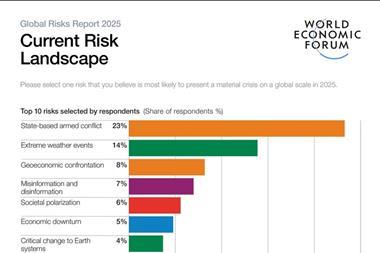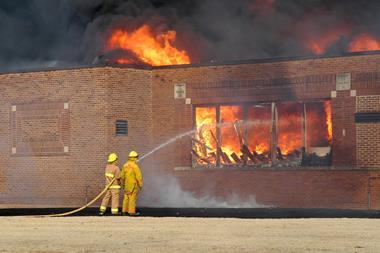Cyber threats, macroeconomic change and geopolitical turbulence will shape emerging risk landscape
Speed of change is making assessing emerging risks difficult according to the ORX 2022 Operational Risk Horizon report.
The report predicts cyber threats, macroeconomic change and geopolitical turbulence will significantly influence the emerging risk landscape.
Based on a survey of over 50 financials firm, the survey was conducted immediately prior to the conflict in Ukraine. Despite this, advanced cybercrime, in particular cyber warfare, is cited as the most worrying emerging risk category.
Steve Bishop, research & information director at ORX commented: “With a high level of organisation and sophistication, often state-backed, groups of cyber criminals are displaying agility and adaptability.
“Since the survey was carried out, we have seen the Ukraine conflict resulting in financial services institutions across the world further raising their alerts against cyber-attacks, and the threat is now both immediate and rapidly evolving.”
In addition to cyber warfare, other top concerns mentioned around cyber crime included:
- Ease and speed of attack – automation and AI allow cyber criminals to quickly adapt and learn while the commoditisation of cybercrime means specialist skills are no longer required
- Lack of internal expertise and skills to prevent attacks
- Evolving and emerging cyber fraud types, typically exploiting emerging technologies
Complex digital ecosystem
The second and third largest risks identified in the report are digital strategies and emerging technologies.
The report shows a broader and more complex digital ecosystem has emerged and will continue to evolve. Accelerated by the pandemic and competition from digital disruptors, this includes traditional market players rapidly digitalising across a range of organisational areas with increasing use of AI and Application Programming Interfaces (APIs).
The technology of greatest concern selected by the survey participants was AI (79%) followed by APIs (38%), robotics/robotic process automation (PRA) (33%), digital currencies (33%) and blockchain (21%).
Whilst it remains important for many report participants, climate and natural catastrophe has fallen as a priority overall due partly to the immediacy of other threats and the complexity and transversal nature of the issue.
Bishop continued: “The world is more turbulent than it has been in a long time. The events of more than the last 24 months have created a highly dynamic and uncertain risk landscape.
”As a result, the focus is on the here and now as well as the things we are able to assess, but we do also urge firms to incorporate additional longer-term horizon scanning to facilitate more predictive analysis to identify future changes in the risk landscape.”




















No comments yet